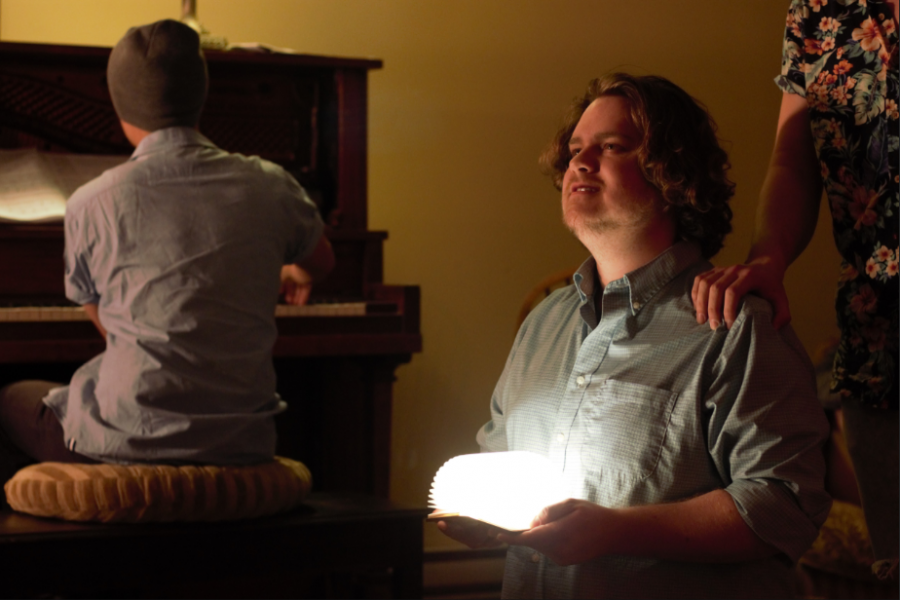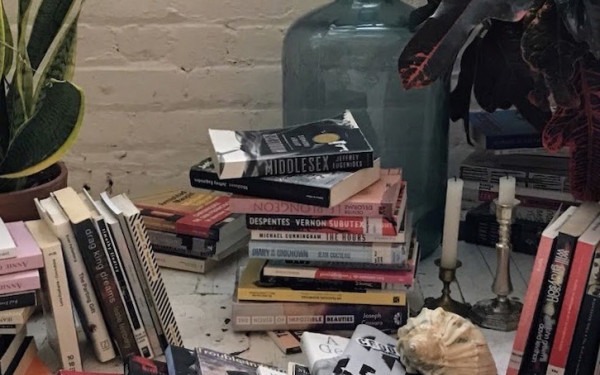Montreal’s Queer Arts Festival Celebrated a Successful Second Edition
The Rose Festival Showcased Multidisciplinary LGBTQA+ Art
You would think that in Montreal, this bastion of diversity and summer festivities, a multidisciplinary queer arts festival would be a well established tradition by 2018.
Surprise! It isn’t. Before last year, Montrealers had no yearly occasion to celebrate queer artists and their works from a variety of mediums.
Then came the Rose Festival. This burgeoning, multidisciplinary festival just wrapped up its second edition May 13 after a weekend showcasing Montreal’s LGBTQA+ creators.
“We have grown so much from last year,” said Corrina Hodgson, founder of the festival. “Being able to support so many more artists was just a fantastic experience.”
The festival was comprised of five events that mixed exhibitions and performances, beginning with an opening vernissage of sculpture, photography and illustrations on May 10 at the Mainline Gallery. The following day saw artists reading new work of poetry and storytelling.
“To be able to see the diversity of the art that we were able to provide platforms for was a really rewarding experience,” said Hodgson. “Hopefully we’re going to be able to continue to grow in this vein and to support more queer artists from different disciplines and more intersectional disciplines who perhaps otherwise would struggle to find a venue for their work.”
Actor Anton May, who participated in the first Rose festival in a theatre performance, noted how much the event grew by its second edition.
“Last year, it was mainly focused on the queer writers in Montreal. But this year it has grown and now it really showcases all the talents of the community from dance, to art, spoken word and of course the emerging queer playwrights,” said May. “Queer representation is something that is lacking on the main stages in the Montreal theatre scene,” he continued.
On May 13, director Russell Wustenberg and performers James M Brown, Patrick McGill and Jerome de los Santos debuted an art song opera performance in two parts in the lobby of the Mainline theatre.
The performance was a blending of the works of 20th century composer Benjamin Britten, whose lover Peter Pears often starred in his operas.
“From a modern perspective, when you look at Britten and Pears, they are [seen as] this quaint seaside couple writing revolutionary English opera, and the reality is that they were so secretive about their relationship that supposedly not even their housemaid knew and yet we have [Britten’s] work that as modern queer individuals we all resonate with,” explained Wustenberg.
He called their creation a reclamation of the queerness that is present in the subtext of Britten’s work, which today can be brought to the front in ways Britten and Pears couldn’t at the time.
Everything from the music to the lyrics are Britten’s original work but reordered to highlight the previously overlooked queer undertones.
“Everything was already written, we just kind of molded it in a way to tell our own story and our own take on it,” said Santos, who played the piano to accompany the singers in the performance.
The four artists echoed a sense of appreciation that with the Rose Festival they have a place to showcase their art where it can be fully acknowledged.
“Being queer, for me at least, means that you’re standing outside the norm, and can look back at it with different eyes, and to have a place for us to look not only at the way that we as operatic individuals tell stories but also how those stories relate to our history as queer people is fulfilment of the mission of the Rose Festival in my eyes,” explained Wustenberg. “It’s a beautiful thing to have a space to celebrate a queer perspective of the world.”
“And the fact that there wasn’t a festival already, especially given Montreal’s culture, that wasn’t dedicated to queer people,” Brown chimed in. “The fact that [it’s] given not only our voices but many people’s voices a platform, we’re very grateful for that.”
Hodgson voiced hopes for the future of the Rose Festival, like gaining non-profit status, finding grants to better solidify their ties with the community and potentially locating a more permanent space to showcase queer art.
“Having that space where you learn to be an artist but you also learn your queer history and you learn that you have a home and a belonging,” explained Hodgson. “And how to celebrate who you are, which is just as important as learning your art in my opinion.”
May hopes that by the third edition of the festival, some of the more mainstream theatre houses in the city will participate.
“I would like to see some of the work picked up and presented on a main stage in Montreal, like how the Fringe Festival has a wild side festival where certain shows get a chance to live again at the Centaur,” he said. “I’d also love to see more of the Afro LGBTQ come and have their voice be heard also.”
“I don’t wish to negate spaces that do exist here […] but I don’t know that there’s a place that it’s all under one roof. I think we need that,” continued Hodgson. “I think we need a sort of arts space where we can all come together and celebrate as a community and challenge each other as a community, and grow together as a community and I hope the Rose Festival at least provides a glimpse of that.”


_600_832_s.png)


_600_375_90_s_c1.jpg)
_600_375_90_s_c1.jpg)